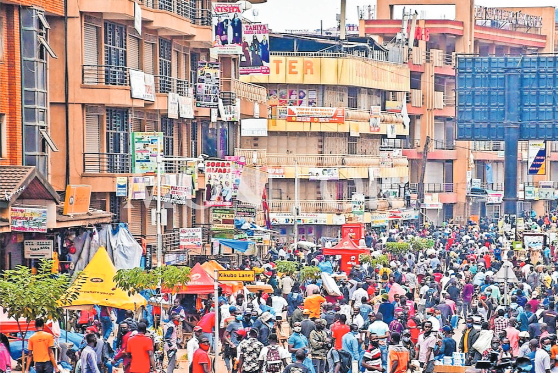Prime
Trust in Uganda: A nation in crisis

Author: Joseph Ochieno.
What you need to know:
- First alerted about it by a science scholar and enthusiast, I obtained a softy copy rather swiftly and my immediate reaction is that it is a worthy read.
Uganda National Academy of Sciences (UNAS) last week released a rather impressive study entitled, “Trust in our Nation: Building Effective Governance and Partnership Systems for Uganda’s Development”.
First alerted about it by a science scholar and enthusiast, I obtained a softy copy rather swiftly and my immediate reaction is that it is a worthy read.
While we were both initially cautious on why a science body would - of all things – conduct a study on trust, considered thought that follow suffices the context under which one might suggest that the idea of the study is itself manifestation of a nation in crisis; I had lamented absence of trust from as crucially as close family members, social relationships, state institutions, faith leaders to critically, business interests where one would expect that driven by profit motive, they would consider ‘breach of trust’ as direct threat to their own being or existence.
Not anymore in Uganda.
Defining trust as, ‘the willingness to be vulnerable through the relinquishment of control over vulnerability, based on expectations of another’s behaviour’, they suggest its primary components as control and, vulnerability intrinsically derived from our mindset (how we perceive the world) and, what we have experienced effectively, our reality.
The emergent continuum from the above is that, ‘positive or negative’ experiences of people or institutions will normally influence we perceive them hence, determining how cautious, cynical (about world around us) or simply whether or not to trust.
While the report gave lead titles to mindset shifts, ‘something torn and something new’ (an examination of Uganda’s past), governance, civil society, private sector and international development and whereas I would have wished to see leadership as a stand-alone element either within governance or, conceptually-specific, quick reading provided an urgent wake up call that something essential -essential brick to nation-building - is broken; trust.
Trust, the detail of which the report further breaks it into two thus; the ‘more mechanistic and particularized, representing the accumulated experiences of interactions in a relationship’ in other words, ‘transactional trust’ and crucially, the ‘more socially based and depends on inherited norms’ otherwise defined as the ‘moral trust’ means in lieu, society would almost certainly be confirmed as in anarchy.
It is inconceivable how in a nation of over 40 odd million people and growing, broken relationships between institutions are sustainable when worse, there are no guaranteed, sustainable solid relationship between the citizens and the institutions designed to serve them, among citizens themselves and worse, citizens and those in whose hands they transfer their vulnerability in order to be served, represented or protected.
On the day I received this report, I discussed the purchase of a faulty car engine that has not worked since and months into it, the ‘victim-buyer’ has spent nearly the same amount in attempting to rectify it, this in absence of apparent legal remedy.
The same week, I discussed someone’s missing tens and tens of millions from their rightful pension and it is business as usual.
And yes, days later, I discussed the experience of sibling doubling a quotation simply because they believe the other ‘has money’.
Indeed, as I penned this opinion, a close friend was reeling; their luggage went missing in the national carrier, Uganda Airlines.
The writer is a pan-Africanist and former columnist with New African Magazine [email protected]




